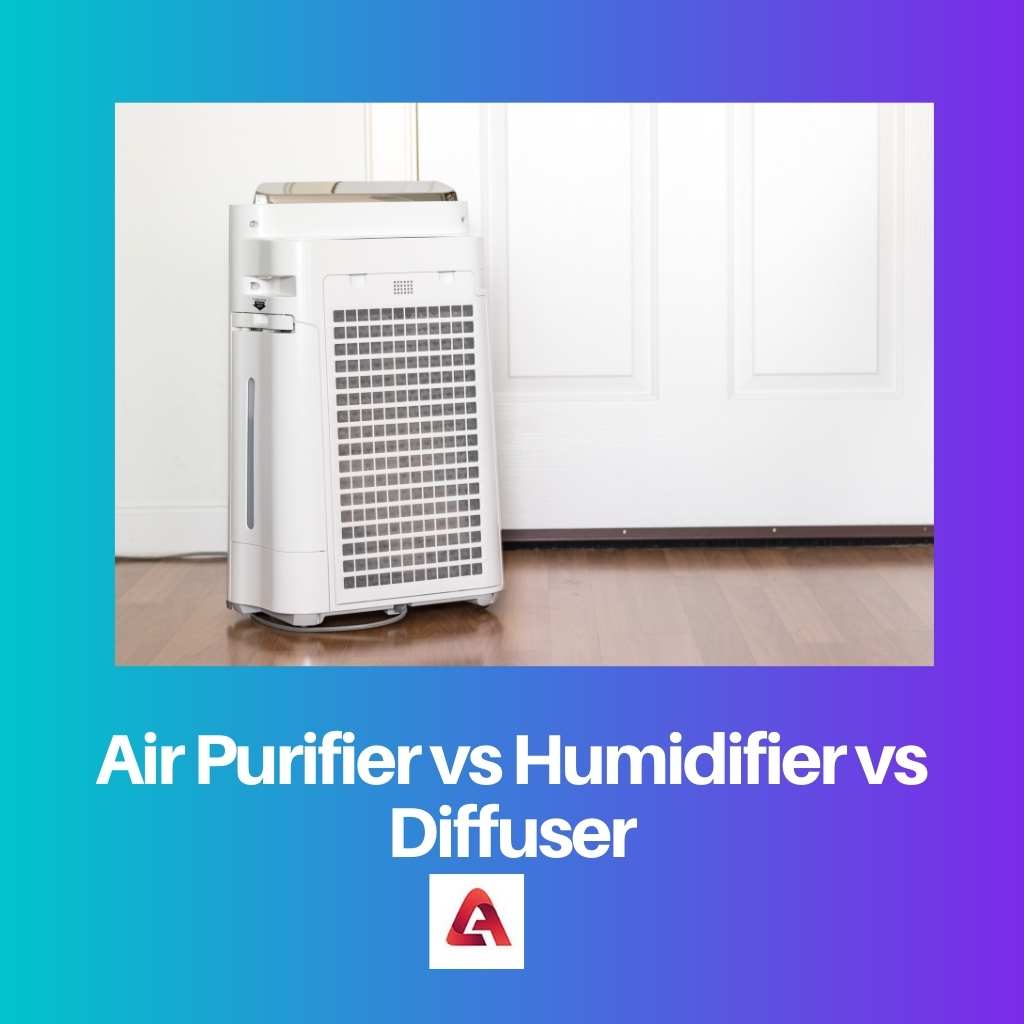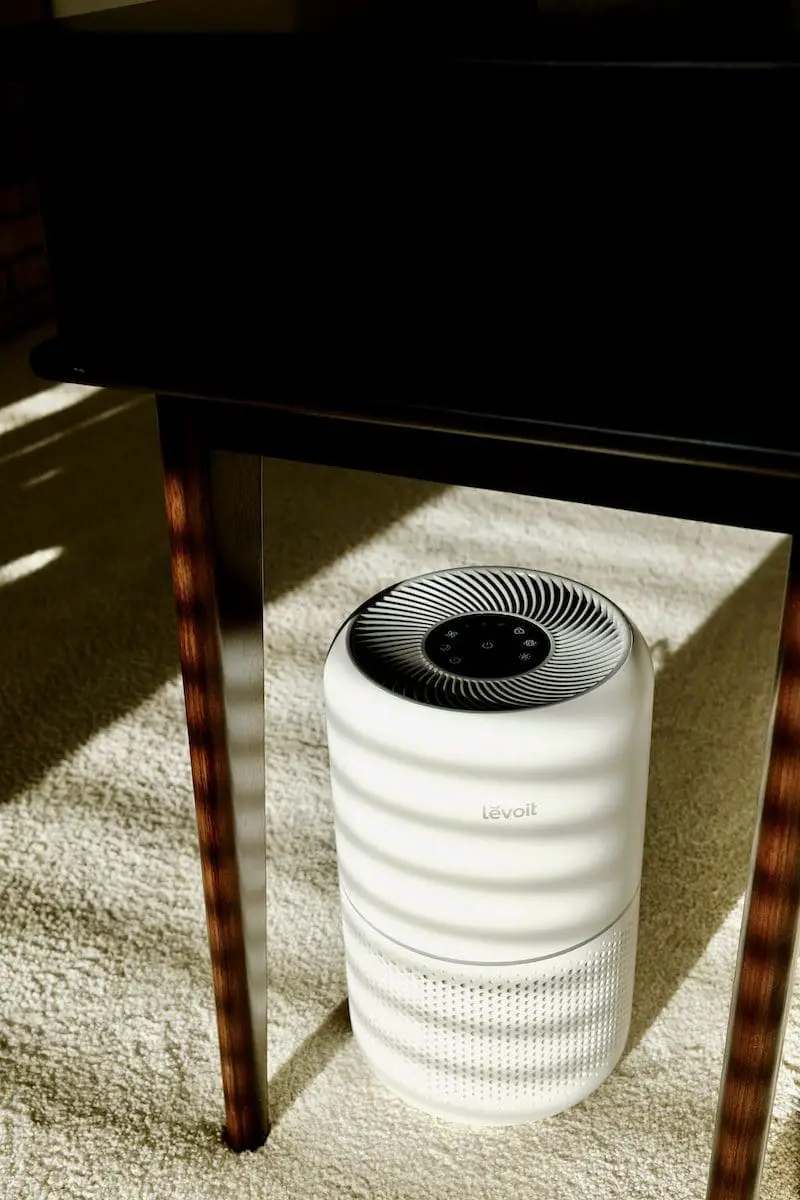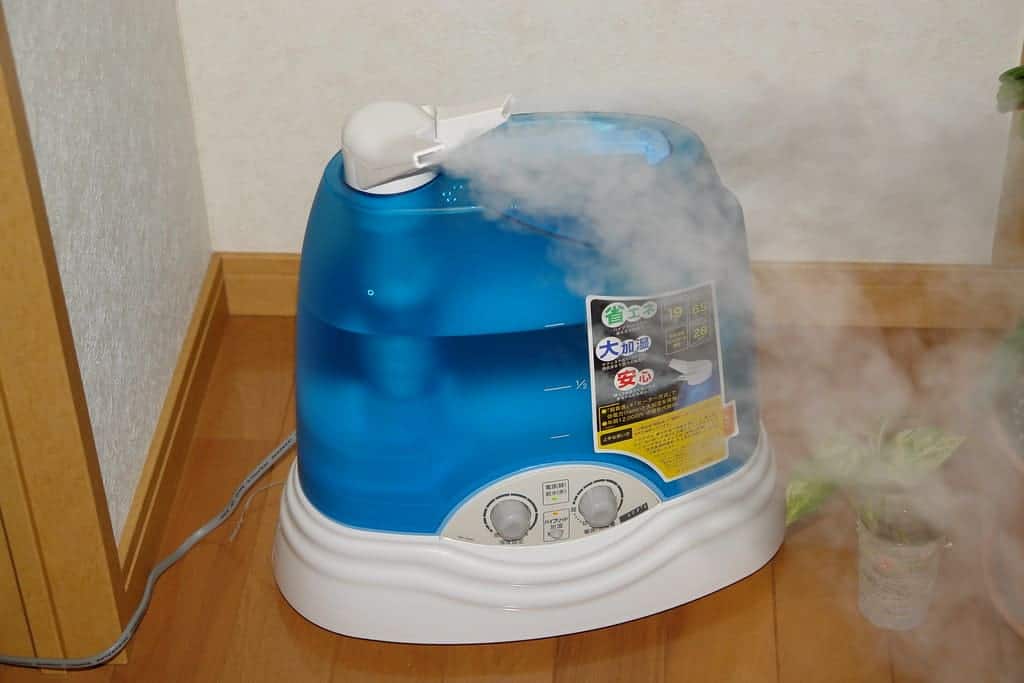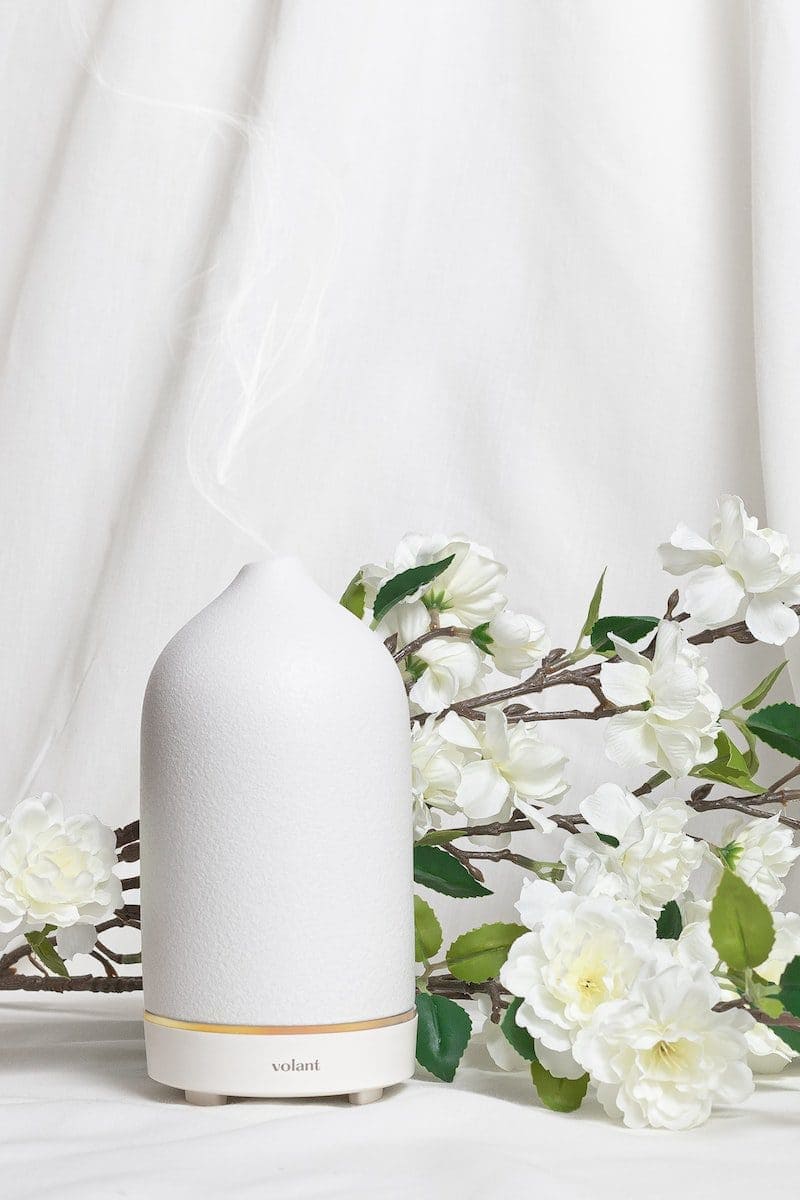Air is a prominent part of our survival. Its quality and odor affect our lives in different ways.
Pollution has subsequently increased which has degraded its quality. Several traditional and modern methods and devices are present which can help us maintain the quality of the air we breathe.
Such devices are helpful in obtaining comfort in everyday life.
Key Takeaways
- Air purifiers are designed to remove pollutants and allergens from the air, while humidifiers add moisture to the air, and diffusers are used to spread essential oils or fragrances.
- Air purifiers are more suitable for people with allergies or respiratory issues, while humidifiers benefit people with dry skin or respiratory problems caused by dry air.
- Diffusers can provide a calming or energizing effect depending on the type of essential oil used.
Air Purifier vs Humidifier vs Diffuser
An air purifier is designed to remove contaminants and allergens from the air, such as dust, pollen, and pet dander. A humidifier adds moisture to the air, making it less dry, more comfortable to breathe, and useful during the winter months when indoor heating can dry out the air.

Air purifiers are the sanitizers of air. They are different from filters that only clean the air, but the air purifiers sanitize too.
The operation mechanism of air purifiers varies with their type. Also, their size matters while you make a buying decision.
Dry and humid air is both uncomfortable and bad for our health and home. To have the air maintain perfect moisture, humidifiers come in handy.
Diffusers almost work the same as humidifiers, but the purpose of diffusers is to release the essence of essential oils in the air which have various soothing and health benefits.
Comparison Table
| Parameters of Comparison | Air Purifier | Humidifier | Diffuser |
|---|---|---|---|
| Purpose | The purpose of an air purifier is to clean the air by eliminating toxic pollutants from the air. | The purpose of a humidifier is to increase the moisture level in the air. | The purpose of diffuser is to release the aroma and benefits of essential oil in the air. |
| Water capacity | Air purifiers do not require water to operate. | A humidifier’s tank can hold a half-gallon of water minimum. | A diffuser’s reservoir has a water capacity of half a cup. |
| Benefits | It is helpful for people suffering from allergies and asthma. | It helps to increase the moisture that relieves discomforts like scratchy throat, dry skin, and a stuffy nose. | It helps to provide aromatherapy with different essential oils. |
| Affordability | These are expensive and maintenance is required. | These are cheaper to purchase and require less maintenance. | These are costly and require frequent maintenance. |
| Operation Method | They use filter or layers of filters to purify the air. They suck air, then ions catch the pollutants and clean air is emitted. | They use the spraying method where water molecules are broken down into mist to release in air. | Diffusers use ultrasonic vibrations to break oil particles into tiny particles and in turn, get mixed with mist and released. |
What is Air Purifier?
An air purifier is an electronic machine that is used to improve air quality in a room by eliminating contaminants from the atmosphere in that area. These devices are useful for people suffering from allergies and asthma.
Air purifiers that are commercially graded, are manufactured in both larger and smaller versions that can be attached to HVAC units or AHU units, found in commercial, medical, and industrial industries.
Air purifying with these devices can be done in two ways; active and passive air purifying technology. In active purifiers, negatively charged ions are released into the area’s atmosphere and that causes the pollutants to cling to the surface.
Passive purifiers use filters to eliminate pollutants from the air and it is said to be a more efficient method because they remove all the dust from the air.

What is Humidifier?
A humidifier is a device used to increase the humidity level in a particular room or a whole building. Humidity implies moisture.
Point-of-use humidifiers are used to increase moisture in a single room while bigger spaces like a building can be humidified with a furnace or house humidifiers that are connected to a home HVAC unit.
Humidifiers help to prevent irritation in our body parts that are caused by dryness in the room. Particularly, it is effective to treat dryness in the nose, skin, lips, and throat.
Some symptoms caused by common cold and flu can also be calmed with humidifiers.
Humidifiers come in different sizes, like portable or consoles. Portable humidifiers are small in size which makes them a perfect fit for travel and personal use.
Console humidifiers are used to humidify an entire house, so they are much bigger than portable ones. Often console units come with wheel attachment which makes it easy to move them from one room to another.

What is Diffuser?
Diffusers are devices which is used to release the benefits of essential oils in the air, and depending on the essential oil their significance and benefits differ from one another.
Diffusers are an essential part of aromatherapy and esotericism and have been known to exist for thousands of years. Diffusers are also known as aroma lamps.
There are different types of diffusers available in the market ranging from traditional lamps to electronic diffusers.
Typically, diffusers release oils by heating them, which leads to natural evaporation and another method is by nebulizing it using ultrasonic or compressed air.
Each essential oil claims different qualities and there are varieties of them available in the wide market. Some of which are lavender, peppermint, lemongrass, tea tree, lemon, eucalyptus, orange, and frankincense.
One or a combination of oils can be used in diffusers.

Main Difference Between Air Purifier, Humidifier and Diffuser
Origin
- Lewis P. Haslett developed the first air-purifying equipment and patented it in 1848. And the first indoor air purifier was build in the 1960s.
- Raymond Banks invented diffusers and he received its patent in 1962 which was assigned under the name, Walton Lab, Inc.
- It was the Egyptians who started the art of producing essence from plants more than 5000 years back and the Greeks invented the method of distillation after 200 years of that.
Pros
- The pros of air purifiers are odorless air, volatile organic compound’s disposal, smoke-free air, energy efficient and no allergens.
- The pros of humidifiers are health benefits, increase in comfort and suitability for furniture.
- The pros of diffuser includes improvement in respiratory health, boost of immune health, elimination of odor, acts as insect repeller and is cost-friendly.
Cons
- The cons of air purifier are ozone emissions, UV rays, high maintenance, growth possibility of bacteria and molds.
- The cons of humidifers can be over humidification issues, noise, contamination and frequent maintenance requirement.
- The cons of diffuser includes possibility of allergy problems, skin irritation, asthmatic reactions, and non suitability for pregnant women.
Types
- Air Purifiers have various varieties like UV air purifier, Ionic air purifier, HEPA air purifier, Electronic air cleaners, Air-to-Air exchangers, and Activated carbon air purifiers.
- Humidifiers variants are Central humidifier, Steam Vaporizers, Evaporators, Impellers humidifiers, and Ultrasonic humidifiers.
- Diffusers have different types like Ultrasonic diffuser, Electric heat diffuser, Reed diffuser, Nebulizing diffuser, Fan-style diffuser, Terracotta diffusers, and Candle diffuser.
Sound Production
- Air purifiers and diffusers makes noise when they are operating, whereas humidifiers produces very less sound.
- https://freshandbreezy.com/is-a-diffuser-also-a-humidifier/
- https://freshandbreezy.com/which-work-better-air-purifier-vs-humidifier-for-baby/
